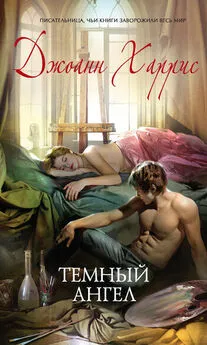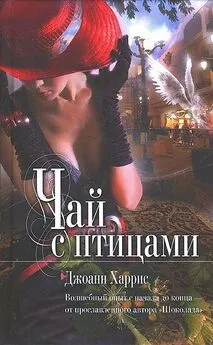Джоанн Харрис - Шоколад / Chocolat
- Название:Шоколад / Chocolat
- Автор:
- Жанр:
- Издательство:неизвестно
- Год:2021
- Город:Москва
- ISBN:978-5-04-117086-8
- Рейтинг:
- Избранное:Добавить в избранное
-
Отзывы:
-
Ваша оценка:
Джоанн Харрис - Шоколад / Chocolat краткое содержание
«Шоколад» – это история о доброте и терпимости, о противостоянии невинных соблазнов и закоснелой праведности. Одноименный голливудский фильм режиссера Лассе Халлстрёма (с Жюльетт Бинош, Джонни Деппом и Джуди Денч в главных ролях) был номинирован на «Оскар» в пяти категориях и на «Золотой глобус» – в четырех.
В формате PDF A4 сохранен издательский макет книги.
Шоколад / Chocolat - читать онлайн бесплатно ознакомительный отрывок
Интервал:
Закладка:
Guy, my confectioner, has known me for a long time. We worked together after Anouk was born and he helped me to start my first business, a tiny pattisserie-chocolaterie in the outskirts of Nice. Now he is based in Marseille, importing the raw chocolate liquor direct from South America and converting it to chocolate of various grades in his factory.
I only use the best. The blocks of couverture are slightly larger than house bricks, one box of each per delivery, and I use all three types: the dark, the milk and the white. It has to be tempered to bring it to its crystalline state, ensuring a hard, brittle surface and a good shine. Some confectioners buy their supplies already tempered, but I like to do it myself. There is an endless fascination in handling the raw dullish blocks of couverture, in grating them by hand – I never use electrical mixers – into the large ceramic pans, then melting, stirring, testing each painstaking step with the sugar thermometer until just the right amount of heat has been applied to make the change.
There is a kind of alchemy in the transformation of base chocolate into this wise fool’s gold; a layman’s magic which even my mother might have relished. As I work I clear my mind, breathing deeply. The windows are open, and the through draught would be cold if it were not for the heat of the stoves, the copper pans, the rising vapour from the melting couverture. The mingled scents of chocolate, vanilla, heated copper and cinnamon are intoxicating, powerfully suggestive; the raw and earthy tang of the Americas, the hot and resinous perfume of the rainforest. This is how I travel now, as the Aztecs did in their sacred rituals. Mexico, Venezuela, – Colombia. The court of Montezuma. Cortez and Columbus. The food of the gods, bubbling and frothing in ceremonial goblets. The bitter elixir of life.
Perhaps this is what Reynaud senses in my little shop; a throwback to times when the world was a wider, wilder place. Before Christ – before Adonis was born in Bethlehem or Osiris sacrificed at Easter – the cocoa bean was revered. Magical properties were attributed to it. Its brew was sipped on the steps of sacrificial temples; its ecstasies were fierce and terrible. Is this what he fears? Corruption by pleasure, the subtle transubstantiation of the flesh into a vessel for debauch? Not for him the orgies of the Aztec priesthood. And yet, in the vapours of the melting chocolate something begins to coalesce – a vision, my mother would have said – a smoky finger of perception which points… points…
There. For a second I almost had it. Across the glossy surface a vaporous ripple forms. Then another, filmy and pale, half-hiding, half-revealing. For a moment I almost saw the answer, the secret which he hides – even from himself – with such fearful calculation, the key which will set all of us into motion.
Scrying with chocolate is a difficult business. The visions are unclear, troubled by rising perfumes which cloud the mind. And I am not my mother, who retained until the day of her death a power of augury so great that the two of us ran before it in wild and growing disarray. But before the vision dissipates I am sure I see something a room, a bed, an old man lying on the bed, his eyes raw holes in his white face… And fire. Fire.
Is this what I was meant to see?
Is this the Black Man’s secret?
I need to know his secret if we are to stay, here. And I do need to stay. Whatever it takes.
10
Wednesday, February 19
A week, Mon pere. That’s all it’s been. One week. But it seems longer. Why she should disturb me so is beyond me; it’s clear what she is. I went to see her the other day, to reason with her about her Sunday morning opening time. The place is transformed; the air perfumed with bewildering scents of ginger and spices. I tried not to look at the shelves of sweets: boxes, ribbons, bows in pastel colours, sugared almonds in gold-silver drifts, sugared violets and chocolate rose leaves. There is more than a suspicion of the boudoir about the place, an intimate look, a scent of rose and vanilla. My mother’s room had just such a look; all crepe and gauze and cut-glass twinkling in the muted light, the ranks of bottles and jars on her dressing-table an army of genies awaiting release. There is something unwholesome about such a concentration of sweetness. A promise, half-fulfilled, of the forbidden. I try not to look, not to smell.
She greeted me politely enough. I saw her more clearly now; long black hair twisted back into a knot, eyes so dark they seem pupilless. Her eyebrows are perfectly straight, giving her a stern look belied by the comic twist to her mouth. Hands square and functional; nails clipped short. She wears no make-up, and yet there is something slightly indecent about that face. Perhaps it is the directness of her look, the way her eyes linger appraisingly, that permanent crease of irony about the mouth. And she is tall, too tall for a woman, my own height. She stares at me eye to eye, with thrown-back shoulders and defiant chin. She wears a long, flared, flame-coloured skirt and a tight black sweater. This colouring looks dangerous, like a snake or a stinging insect, a warning to enemies.
And she is my enemy. I feel it immediately. I sense her hostility and suspicion though her voice remains low pitched and pleasant throughout. I feel she has lured me here to taunt me, that she knows some secret that even I- But this is nonsense. What can she know? What can she do? It is merely my sense of order which is offended, as a conscientious gardener might take offence at a patch of seeding dandelions. The seed of discord is everywhere, mon pere. And it spreads. It spreads.
I know. I am losing my perspective. But we must be vigilant all the same, you and I. Remember Les Marauds, and the gypsies we ousted from the banks of the Tannes. Remember how long it took, how many fruitless months of complaints and letter-writing until we took the matter into our own hands. Remember the sermons I preached! Door after door was closed against them. Some shopkeepers co-operated at once. They remembered the gypsies from the last time, and the sickness, the thieving and the whoring. They were on our side. I recall we had to pressure Narcisse, who, typically, would have offered them summer employment in his fields. But at last, we uprooted them all: the sullen men and their bold-eyed slatterns, their foul-mouthed barefooted children, their scrawny dogs. They left, and volunteers cleaned up the filth they left behind them. A single dandelions seed, mon pere, would be enough to bring them back. You know that as well as I. And if she is that seed…
I spoke to Joline Drou yesterday. Anouk Rocher has joined the primary school. A pert child, black hair like her mother’s and a bright, insolent smile. Apparently Joline found her son Jean, among others, playing some kind of game with the child in the schoolyard. A corrupting influence, I gather, divination or some such nonsense, bones and beads in a bag scattered in the dirt. I told you I knew their kind. Joline has forbidden Jean to play with her again, but the lad has a stubborn streak in him and turned sullen. At that age nothing answers but the strictest discipline. I offered to give the boy a talking-to myself, but the mother won’t agree.
That’s what they’re like, mon pere… Weak. Weak. I wonder how many of them have already broken their Lenten vows. I wonder how many ever intended to keep them. For myself, I feel that fasting cleanses me. The sight of the butcher’s window appals; scents are heightened to a point of intensity that makes my head reel. Suddenly the morning odour of baking from Poitou’s is more than I can bear; the smell of hot fat from the rotisserie in the Place des Beaux-Arts a shaft from hell. I myself have touched neither meat nor fish nor eggs for over a week, subsisting on bread, soups, salads and a single glass of wine on Sunday, and I am cleansed, pere, cleansed. I only wish I could do more. This is not suffering. This is not penance. I sometimes feel that if I could only show them the right example, if it could be me on that cross bleeding, suffering…
That witch Voizin mocks me as she goes by with her basket of groceries. Alone in that family of good churchgoers she scorns the Church, grinning at me as she hobbles past, her straw hat tied around her head with a red scarf and her stick rapping the flags at her feet. I bear with her only because of her age, mon pere, and the pleas of her family. Stubbornly denying treatment, denying comfort; she thinks she’ll live for ever. But she’ll break one day. They always do. And I’ll give her absolution in all humility; I’ll grieve in spite of her many aberrations, her pride and her defiance. I’ll have her in the end, mon pere. In the end, won’t I have them all?
11
Thursday, February 20
I was waiting for her. Tartan coat, hair scraped back in an unflattering style, hands deft and nervous as a gunslinger’s. Josephine Muscat, the lady from the carnival. She waited until my regulars – Guillaume, Georges and Narcisse – had left before she came in, hands thrust deeply into her pockets.
“Hot chocolate, please.” She sat down uncomfortably at the counter, speaking down into the empty glasses I had not yet had time to clear.
“Of course.”
I did not ask her how she liked her drink but brought it to her with chocolate curls and Chantilly, decorated with two coffee creams at the side. For a moment she looked at the glass with narrowed eyes, then touched it tentatively.
“The other day,” she said, with forced casualness. “I forgot to pay for something.” She has long fingers, oddly delicate in spite of the calluses on the fingertips. In repose her face seems to lose some of its dismayed expression, becoming almost attractive. Her hair is a soft brown, her eyes golden. “I’m sorry.”
She threw the ten-franc piece onto the counter with a kind of defiance.
“That’s OK.” I made my voice casual, disinterested. “It happens all the time.”
Josephine looked at me for a second, suspiciously, then sensing no malice, relaxed a little.
“This is good.” Sipping the chocolate. “Really good.”
“I make it myself,” I explained. “From the chocolate liquor before the fat is added to make it solidify. This is exactly how the Aztecs drank chocolate, centuries ago.”
She shot me another quick, suspicious glance.
“Thank you for the present,” she said at last. “Chocolate almonds. My favourite.” Then, quickly, the words rushing out of her in desperate, ungainly haste, “I never took it on purpose. They’ll have spoken about me, I know. But I don’t steal. It’s them”– contemptuous now, her mouth turned down in rage and self-hatred – “the Clairmont bitch and her cronies. Liars.” She looked at me again, almost defiantly. “I heard you don’t go to church.”
Her voice was brittle, too loud for the small room and the two of us.
I smiled.
“That’s right. I don’t.”
“You won’t last long here if you don’t,” said Josephine in the same high, glassy voice. “They’ll have you out of here the way they do everyone they don’t approve of. You’ll see. All this”– a vague, jerking gesture at the shelves, the boxes, the display window with its pieces montees – “none of this will help you. I’ve heard them talking. I’ve heard the things they say.”
“So have I.” I poured myself a cup of chocolate from the silver pot. Small and black, like espresso, with a chocolate spoon to stir it. My voice was gentle. “But I don’t have to listen.” A pause while I sipped. “And neither do you.”
Josephine laughed.
Читать дальшеИнтервал:
Закладка:

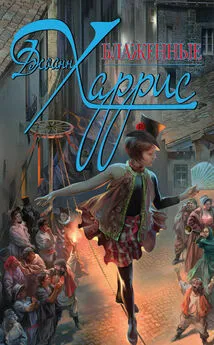
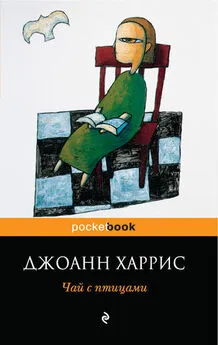
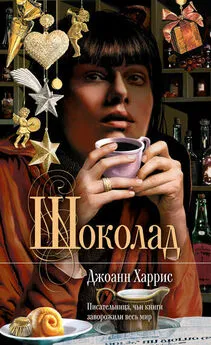
![Джоанн Харрис - Земляничный вор [litres]](/books/1072539/dzhoann-harris-zemlyanichnyj-vor-litres.webp)
![Джоанн Харрис - Джентльмены и игроки [litres]](/books/1087279/dzhoann-harris-dzhentlmeny-i-igroki-litres.webp)

